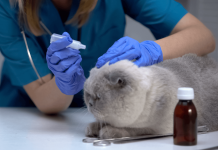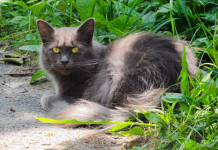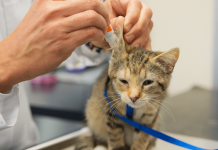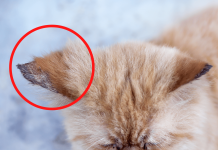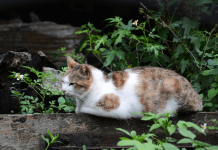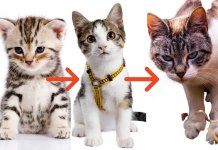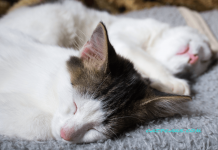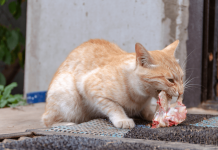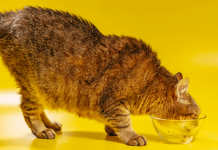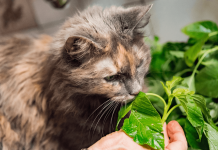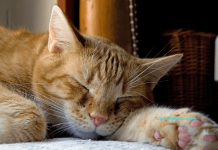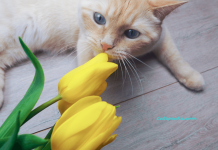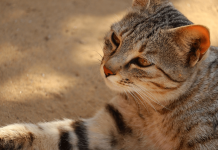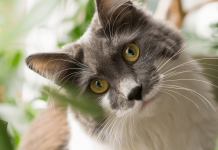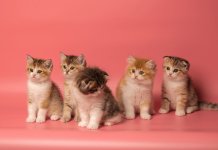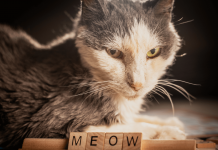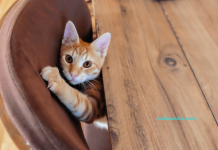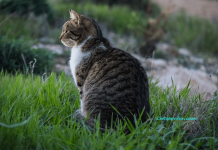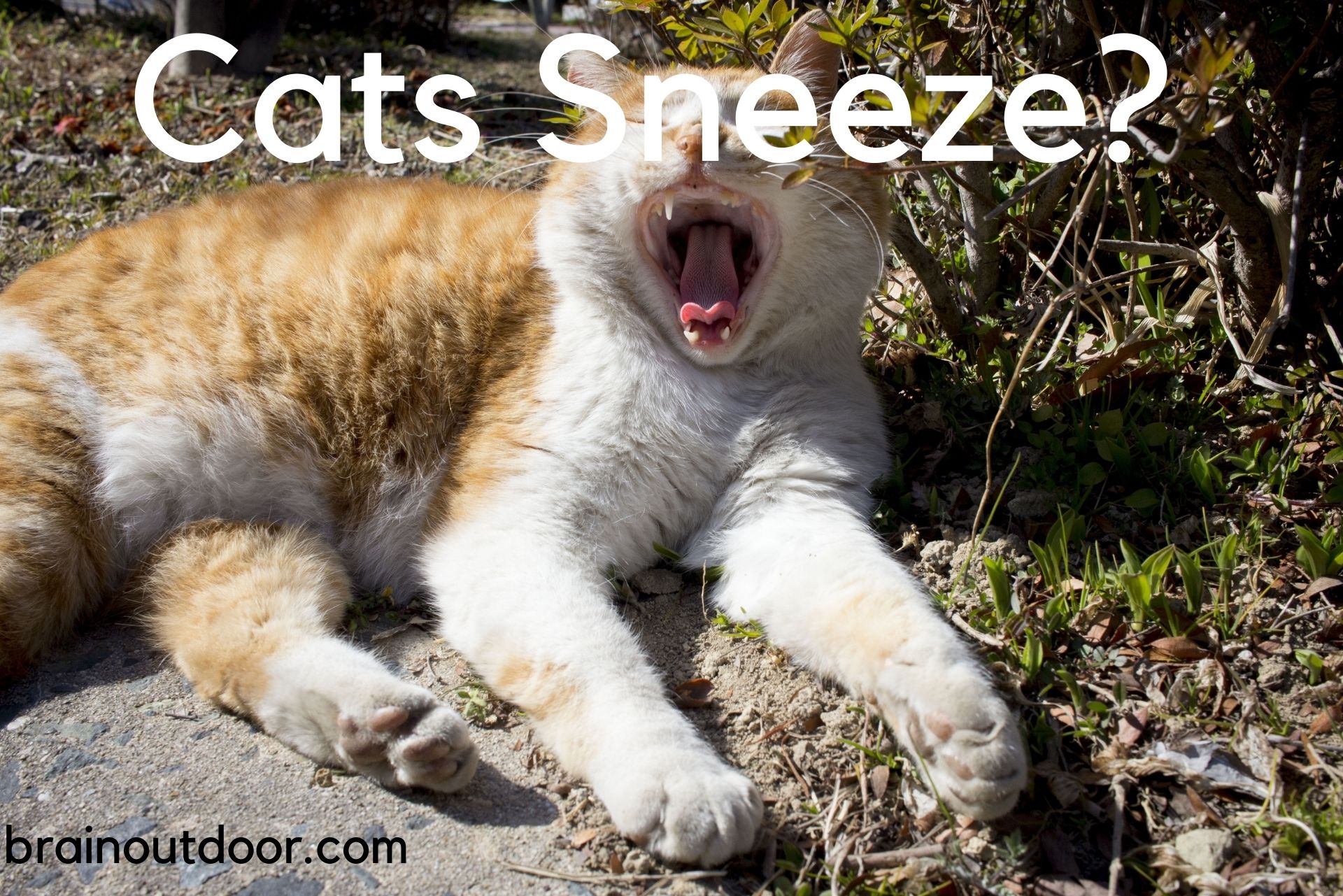I have seen cat parents who adore their cat and say “Bless you” each time the pet sneezes. It is not uncommon for animals to sneeze including cats. Their bodies are biologically programmed to wheeze in case an irritant tries to enter its way into the body through the nose.
Now the question is if sneezing is always blissful to your felines? Or why do cats sneeze? Do you have to worry about your feline’s health? Well, a wheeze every now and then is normal for a kitty. But if it becomes more frequent with discharge, then you should take it seriously.
In the following blog, you will get all the causes responsible for a cat sneeze along with your responsibility in that condition.
Why Do Cats Sneeze?
“My cat keeps sneezing. Why?” A cat sneezing is quite normal if it happens once or twice a week. But you need to worry when the sneezing continues for a whole day or even more. This indicates something is going wrong with your feline. Read the following causes that are responsible for your cat’s abnormal sneezing:
The Surrounding Is Working As An Irritant

In most cases, the environment is responsible for the cat’s sneeze. The feline’s noses are sensitive and they are more like two buttons. So, dust and dirt always try to find a way in. To eliminate those irritants, cats will sneeze loudly.
By irritants, I am referring to both the dirt and scents. Your household dust, pollen from your home plants, molds, the dust of the litter box are enough to cause sneezing. Again, you know the smelling sense of the felines is strong. Any sharp scent may irritate their noses. For example,
-
-
-
- Scented candles
- Body spray
- Perfume
- Room freshener
- Cooking spice
- House cleaners
- Cigarette smoke
- Essential oils
-
-
Foreign Material Is Stuck
Intruders are often responsible for your feline’s sneezing. You know cats are curious by nature. They try smelling anything they get. While inhaling the scent, sometimes foreign materials can get stuck in their nasal passage. For example, grass, pollen, foxtails, etc.
Sneezing is the programmed body mechanism to expel anything that causes irritation. So, the pet may try hard to expel these intruders with sneezes. But here is the thing. Though dirt or dust particles can be eliminated by sneezing, foreign materials do not get out. It is due to their bigger size.
If foreign material is responsible for your cat’s sneeze, take the pet to the vet. Only professionals can remove the material without harming the kitty. They do it either with a rhinoscopy or sterile saline.
Infection Is Dangerous
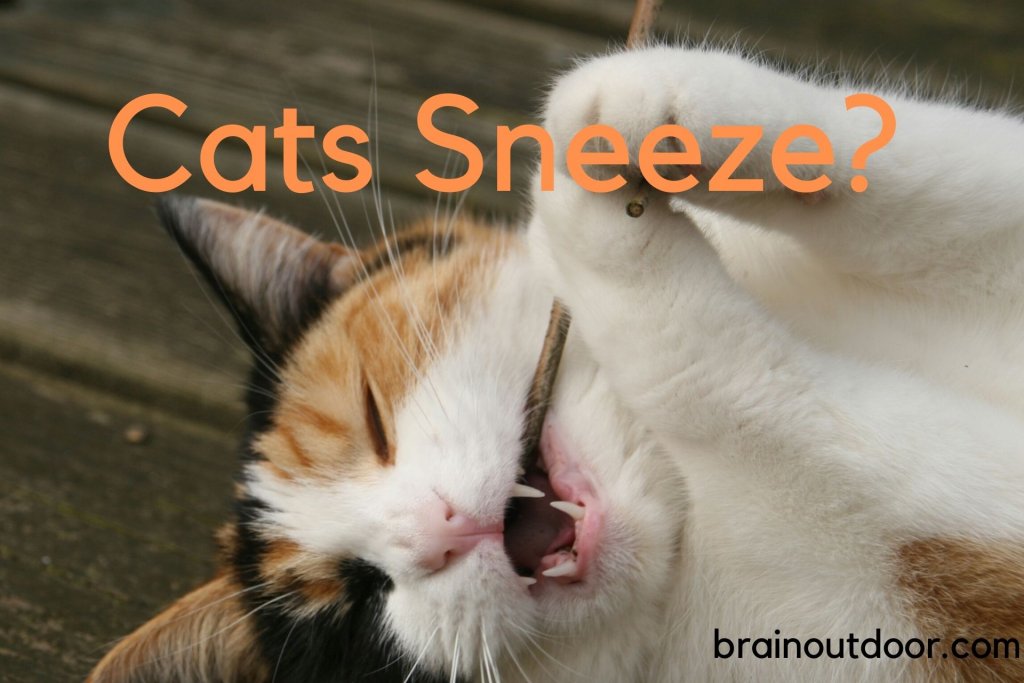
Why do cats sneeze if they have an infection? Experts claim that sneezing along with some symptoms often indicates severe diseases. Upper respiratory infection is the most common condition that causes sneezing in felines. Even a study indicates that about 80 to 90 percent of cats suffer from URI or upper respiratory infection.
The symptoms of URI are sneezing along with watery eyes, coughing, and a runny nose. A feline can get URI in two conditions. First, if it is adopted from a shelter. And second, if your cats have been roaming around with other kitties. The URI is a contagious disease and in a stressful environment, the transmission increases.
If the URI condition lasts for more than a week, it is considered a chronic disease. You will require professional help to diagnose and treat this condition.
A virus called feline calicivirus can be responsible for the upper respiratory infection. Not only that, this virus sometimes causes oral diseases in felines too. Sneezing, runny eyes, and noses, and conjunctivitis are the signs that your cat is carrying this virus.
Another contentious disease is feline herpes. This infection can be responsible for your cat’s sneezing. If your cat is suffering from herpes, you will observe discharge from its mouth too. Eye ulcers and loss of appetite are two signs of this disease.
A cat can suffer from fungal infections too. A fungus called Cryptococcus is usually responsible for the infection in the feline’s nasal area. Suffering from this condition can be really painful. Sneezing is a prime sign of this disease.
The bacterial infection is not uncommon in cats. It usually attacks the felines after they suffer from any severe respiratory virus. If you notice green or yellow snot from your kitty’s nose, then it is a bacterial infection for sure. The cat will sneeze continuously along with exhibiting other symptoms. Consult a vet and seek medical support in this case.
“My cat is sneezing and has watery eyes.” Check if any of the conditions above matches your description. Then take immediate action to treat your pet feline.
Something Is Wrong With The Teeth
Are you wondering how teeth and nose can be related? This can be surprising but not biologically. The nasal passage of a cat is situated right next to the teeth roots. So, any inflammation or pain in the teeth will affect the nasal area. Experts claim that treating dental diseases, food stuck in the teeth, or even the meals of the cats can trigger the sneeze.
Viruses Are Also Responsible
Attack of a few viruses like rabies, ringworms can make your felines sneeze. These conditions may get severe if you do not treat the pet immediately.
Inflammation Causes Sneezing
URI can be proven as a severe disease and has post complications. Some experts believe that sinus inflammation and irritation in the nose are two aftereffects of URI. You can also count the Rhinitis inflammation condition in this category. Sneezing, eye and nose discharge, breathing from the mouth are symptoms of inflammation.
A Side Effect Of Vaccination
Some nasal infections can be treated with vaccines. After a feline is treated with vaccination, it can continue sneezing for a few days. Count that as the side effect of the vaccine.
Why do cats sneeze? There are several reasons and I have discussed most of them. Not all the conditions are severe. But if you observe coughing, runny nose, eye discharge, drooling, fever, weight loss, fatigue, mouth breathing, and other symptoms, take the cat to a vet as soon as possible.


